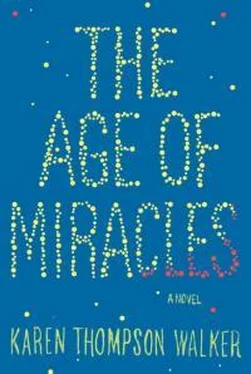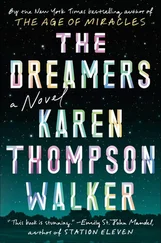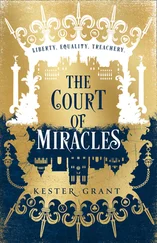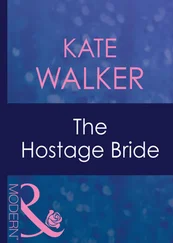The afternoon dwindled. The moon slipped out of sight. The English teachers handed out the summer reading lists: Animal Farm , Tom Sawyer , The Diary of Anne Frank . Never before were we so comforted by the screech of our chairs on linoleum, the squeak of a marker on a dry-erase board. But the clocks ticked at the usual speed, so the end of the day arrived on time. The school buses groaned at the curb, headlights blazing in the mist. The bell rang. Some hugged. Some cried. We all scattered. We were less eager for summertime than we’d ever been before.
The solar storms raged all summer. Seth and I kept close track of them. We never felt them when they struck, but they damaged wiring and sparked fires all over the world. More and more radiation was leaking into the atmosphere. We could trace its presence in the wild arcs of the auroras that shot through the sky whenever it turned dark. We never knew when the electricity might go out. A surge of magnetic particles could knock out the power grid at any time, and so we kept our flashlights close, candles ready.
We continued to stay away from the sun.
By then much of what came from the mouths of scientists was unintelligible to the rest of us. But we understood certain stark facts. The same solar wind now pummeling our skies had once, long ago, lapped away the oceans and the atmosphere of Mars.
“We’ve seen effects like this in the magnetic field before,” said one scientist, “but never on such a grand scale. It should take thousands of years for this kind of deterioration to take place.”
Their statements sometimes lapsed into poetry. Their imaginations began to run wild. Some speculated that a third force was involved, as yet unknown.
“We’re seeing something here,” said one researcher, “that undermines our entire understanding of physics.”
My mother’s sickness ebbed and flowed, but she learned to predict her dizzy spells by the faint metallic taste in her mouth, one more symptom that her doctor could not explain.
I noticed that my father began to care for her in a newly tender way. I read their interactions from a distance, but I sensed a new closeness between them. Something had shifted, but the cause was mysterious to me. I studied them from afar that summer, the way, as we’d learned in school, astronomers could sometimes detect a distant planet—not by seeing it but by measuring how its mass bent the path of starlight. The clues were in the curve of my father’s arm around my mother’s shoulder, the softening tone of her voice. Sometimes my mother would emerge from her nausea in a state almost cheerful, and we’d play Monopoly or Chinese checkers for a while, my parents sipping beers. Once she felt well for a whole week straight, and they stayed up late together every night, talking softly, laughing now and then. “See?” I remember my father’s voice insisting. “You’ll be fine.” The more time that passed, the less I understood the bond between them, but I began to suspect that the tipping of that ladder in my grandfather’s bomb shelter had changed the course of my parents’ marriage. I’ll never know the exact order of events or which decisions were made when. I’ll never know if my father really had been planning to leave with Sylvia that day or not. I know only that he didn’t leave. I know only that he stayed.
I never saw Sylvia again. I don’t know if my father ever did. There were times that summer and afterward when I’d hear him on the phone late at night, but I couldn’t say who he was talking to or what was being said.
When he was not at work, my father spent hours cataloging my grandfather’s possessions. His old oak clock now ticked in our living room. My grandmother’s miniature spoons now dangled from the lemon-yellow wall of our kitchen. My grandfather’s baby shoes, preserved in silver eight decades earlier, now sat on our living room shelf.
My father never mentioned Sylvia directly. Together, we worked hard that summer to imagine that certain events had never taken place. The mind is a powerful force, two minds especially.
Sometime in June, the police report from my mother’s accident arrived in our mailbox. It must have mentioned the pedestrian’s fate—deceased—but I caught only one quick glimpse of the document as my father crumpled it up and tossed it into the fireplace among the newspapers he was using to build a fire. It was as if the two of us had learned to travel back in time to someplace simpler where the rules of chronology and consequence, of action and reaction, were different, more diffuse, less sure. He brought up Sylvia on only one occasion.
It was a clear black night, the moon three quarters full. We were walking down to the elementary school—his idea—to kick the soccer ball on the field for a while.
“I know not everything makes sense to you,” he said as we walked. A few streetlights showed the way. I was afraid of what he might say next.
“Do you know what a paradox is?” he said.
He paused and rubbed his forehead. A chain of nearby houses glowed in silhouette against the dark sky.
“Not really,” I said.
I recall the way my hands felt that night, curled tight in the sleeves of my parka. We could see our breath in the air. I was still getting used to it, how cold the long darknesses could be.
“A paradox,” he went on, “is when two contradictory things are both true.”
He turned his head up to the sky. The tiniest bald patch had opened up at the back of his head; it was everywhere, I was realizing—the sharp evidence of time.
“Just remember that, okay?” he added. “Not everything is clear-cut.”
We reached the parking lot and found an opening in the chain-link fence. I remember the crunch of artificial turf beneath cleats. Every outdoor plant in the neighborhood was dead by then.
The soccer ball shimmered in the glow of the auroras. My father stood in the goal while I took shots. As the months passed, it had gotten less and less satisfying to kick a ball through the air, harder and harder to make it fly across a field—it wasn’t really gravity that was increasing but centrifugal force. The ball felt heavy on my foot.
“Did you hear they found another planet that might be kind of like Earth?” said my father, as we headed back to the street.
“Really?” I asked. “Where?”
“A long way from here,” he said. “Twenty-five light-years.”
A string of cars floated down the street, the headlights revealing momentarily a row of tree stumps at the front of the school.
“So it doesn’t help us,” I said.
“No,” he said. “No, not us.”
We walked in silence for a while. I zipped my parka up to my throat. My cleats clicked on the asphalt.
“I bet you’ll make the traveling team this year,” said my father. Streaks of green and violet flared across the sky.
“Maybe,” I said.
But I think we both knew that there would be no traveling team that year.
From every direction, the echoes of hammers were wafting through the air, the hiss of circular saws, the cutting of steel. Hundreds of radiation shelters were ballooning beneath the ground.
And still the days grew and kept growing. We hit seventy-two hours on the Fourth of July.
On dark days that summer, Seth and I roamed beneath the streetlights, pale creatures, still growing. Seth seemed healthy again. He seemed fine. We took turns riding his skateboard down the hills of the neighborhood. We bought candy at the liquor store, drank sodas on the cliffs above the beach. We stood vigil at the dying of the whales.
One afternoon Seth’s nose began to bleed. A few drops landed on his T-shirt.
“It’s nothing,” he said, wiping his nose with the back of his hand and pulling a tissue from his pocket. We were walking near the ocean, which was dark and loud beneath us. Seth tilted his head back, pinched the bridge of his nose. The blood quickly flowered through the tissue. “It happens sometimes,” he said.
Читать дальше












